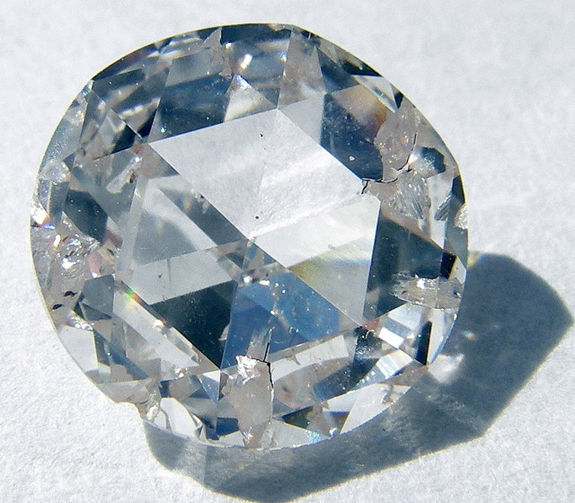Quantum Computing Now At Least Vaguely Plausible

Synthetic diamond. Photo: Steve Jurvetson
According to the Harvard Gazette, an in-house publication, researchers at America’s humblebraggiest institution exploited the behavior of impurities in manufactured diamonds to store information for up to two seconds. That’s an eternity in the super unstable world of subatomic properties.
“What we’ve been able to achieve in terms of control is quite unprecedented,” Harvard Professor of Physics Mikhail Lukin said. “We have a qubit, at room temperature, that we can measure with very high efficiency and fidelity. We can encode data in it, and we can store it for a relatively long time. We believe this work is limited only by technical issues, so it looks feasible to increase the life span into the range of hours. At that point, a host of real-world applications become possible.”
There are still a lot of kinks to work out, but combined with other recent work, a useful quantum computing system may be inching ever closer to reality.
Using an entirely different approach, scientists developed memory that can hold information for three minutes, reports Physics World. That version, unlike the diamond-based approach, must be done at a mind-bogglingly frigid 2 Kelvin, or close to absolute zero, which is the point at at which all motion ceases.
More from Smithsonian.com:
/https://tf-cmsv2-smithsonianmag-media.s3.amazonaws.com/accounts/headshot/smartnews-colin-schultz-240.jpg)
/https://tf-cmsv2-smithsonianmag-media.s3.amazonaws.com/accounts/headshot/smartnews-colin-schultz-240.jpg)